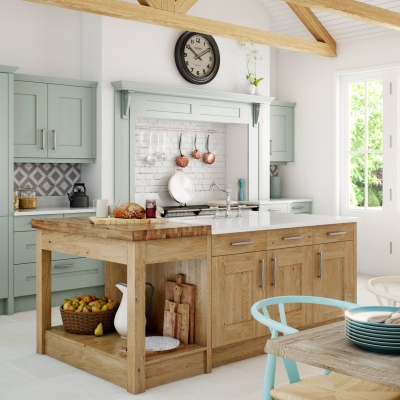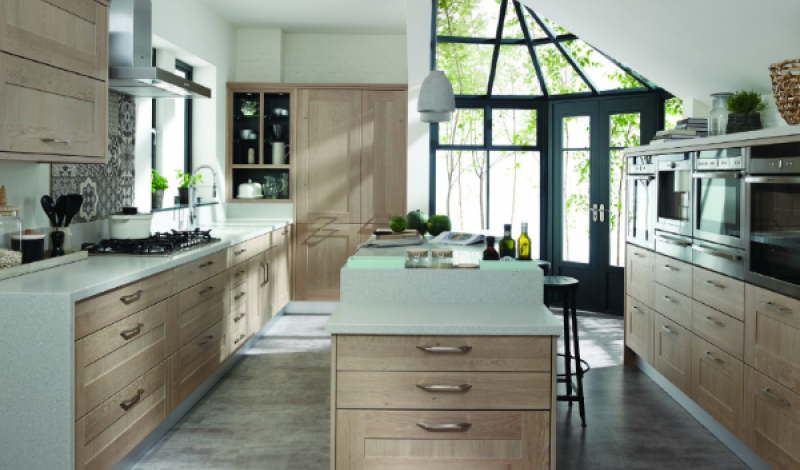Kitchen Design Advice from Stuart at Louis Bespoke Kitchens
 7
7Dec '16
You’ve made up your mind: the tired old units have definitely got to go - but where do you start looking for a replacement kitchen and a kitchen designer?
It's precisely at this point where many kitchen projects go wrong, as a casual wander into a major multi-site retailer at the local shopping park 'just to see what's available' can often result in the whole thing escalating at a pace a lot quicker than you had in mind.
The first rule is quite simple and that is to plan your purchase and to not be swayed by offers and deadlines from enthusiastic sales people along the way. Your plan should be to get at least three quotes - one could be from the major multiple your neighbours used for their kitchen, because they were happy with it and it looks ok; another from a local company that advertise in the local magazine and, whilst looking to be quite expensive, they do have a reputation for quality; a third quotation could perhaps be from the small independent specialist you have heard good reports about - and that have a showroom on the local industrial estate.
If possible make sure that at least one, two ideally, of your shortlisted specialists is a Kbsa member. This means they adhere to strict quality requirements and will be there to support you throughout the project and beyond.
In this way you will get a cross section of opinions, but choose your prospective kitchen suppliers objectively and don't waste the time of any company that you have no intention of doing business with.
Don't be put off either by kitchen specialists that make a charge for their design service - a design you pay for is not guaranteed to be any better than a design you get for free, but it is a sign that the company takes design seriously and, usually, as many variations as are necessary are all included in a one-off fee.
Kitchen designers will need a detailed brief from you. Generally, the more experienced your designer is then the more detailed your brief will need to be.
When you first meet your designer you might like to get your confidence in them reinforced with a few well-chosen questions. For example: how long have you been designing kitchens? This is a simple starter and if answer is something like "several years" it will be a lot better than "they moved me here from the gardening department two weeks ago". That might be an extreme example but you won't end up doing business with someone in whom you have little or no confidence, so your designer needs to impress you from the start and not baulk at being questioned.
Watch out for the designer that seems to say a lot but that doesn't ask many questions. A good designer is inquisitive about you and your lifestyle. They should be more concerned about getting your worktop height correct than making sure that you know "Canterbury Shaker is half price for the whole of August".
My advice here is to sit down and leave no stone unturned in making sure that your designer knows not only your criteria but also the order of importance. This will not only enable them to prepare your ideal design but it will also let you see how the design has been rationalised. This in turn helps to prioritise your main requirements and to only introduce compromise in those areas that have been identified as being less important.
It can help sometimes, particularly if you are under pressure from your designer to choose everything before you are ready, to simply request draft design options and budget figures - this approach might deter the designer that just wants to pin you down and sell you something - but it will delight and inspire the more design orientated designer that enjoys his work and is not just thinking about his commission!
In the final analysis, if you are to get value for money on the design that optimises the form and function of your new kitchen then these early stages are vital to get right. To ensure that this happens, don't be afraid to challenge your designer and insist that they fully explain the logic employed in the design - in this way you will quickly see whether or not your proposed new kitchen has been objectively designed or is perhaps just an arbitrary collection of units.
Good luck!
Stuart Irving

